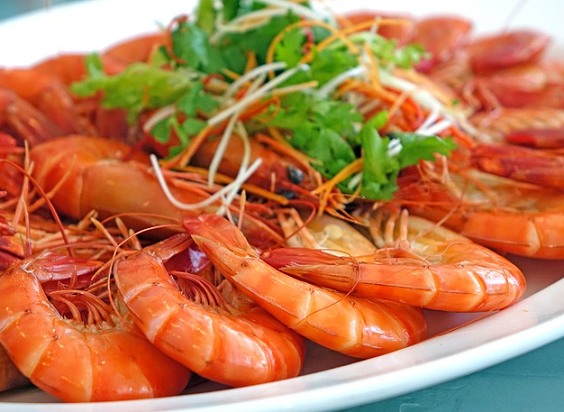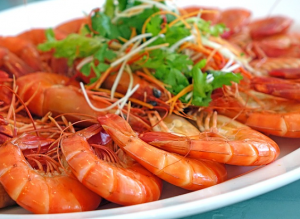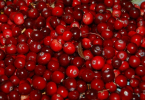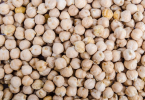Feeding your dog shrimp might seem like a great idea. After all, shrimp is meat and we all know how much dogs love their meat. But is shrimp healthy for dogs, though? Can dogs eat shrimp or should we keep it on our plates instead? Can this delicious crustacean be included in your buddy’s diet? Let’s find out!
Most people say that it’s a good idea to feed their dogs shrimp, as long as it is served in small quantities. The truth is that this type of seafood does contain a lot of proteins, the base of dogs’ diets. However, the downside of this popular seafood is the high level of cholesterol. So there are certain aspects of this food you should know before feeding it to your pooch.
Our canine companions have a huge appetite, they could pretty much eat anything that falls within their line of sight. In this article, we have summarized the most important questions dog owners would want to know about this delicious crustacean. Below is a handy guide for curious dog lovers who want to treat their buddies with tasty human foods. If you have been wondering about shrimp’s benefits to dogs, read our detailed article.
Can Dogs Eat Shrimp or is Shrimp Dangerous to Dogs?
Yes, dogs can eat shrimp occasionally when it is properly prepared. It’s best to serve well cooked shrimp to dogs. Couple shrimp here and there most likely won’t harm your dog but don’t make it a habit. Shrimp may be a delicious treat from time to time. However, eating it in excessive amounts is not recommended. Your dog may become bloated or get an upset stomach.
In addition, some dogs may get digestive problems when eating shrimp. It’s recommended to observe your dog closely every time you introduce new foods to his diet.
Can Dogs be Allergic to Shrimp?
It’s rare but some dogs may develop food allergies to shrimp. Like sated before, always observe your pooch after giving him shrimp for the first time!
Common symptoms of a shrimp allergy would be vomiting, lethargy, and the loss of appetite. If your furry buddy experiences any of those symptoms, stop feeding him shrimp and consult with your dog’s veterinarian immediately.
If your pooch ends up with a shrimp allergy, you should be cautious about other shellfish treats. If you are overly worried, you could get your dog tested for allergies.
Note: Some reactions to this delicious crustacean may not be a real allergy to shrimp at all but instead of reactions to sulfite preservatives that are often used to protect the shelf life of the shrimp.
Can Puppies Eat Shrimp?
Puppies, too, can enjoy occasional shrimp. Just make sure that they are old enough to digest solid foods. Always, make sure that you are feeding your puppy age appropriate foods.
Don’t season any of the shrimp you are planning to serve to your pets. Onion and garlic can be very toxic to dogs. It’s recommended to serve cleaned, plain, and well-cooked shrimp to your furry friends.
Health Benefits of Shrimp
Shrimp has useful antioxidants. It contains anti-inflammatory carotenoid called astaxanthin. In animal studies, astaxanthin has been revealed to supply antioxidant support to both the musculoskeletal and nervous system. Additionally, other animal researches have shown decreased risk of colon cancer associated with intake of astaxanthin, as well as decreased risk of diabetes. Potentially, a single 4-ounce serving of shrimp may contain 1-4 mg of astaxanthin. However, the astaxanthin in shrimp varies, mainly with the amount of astaxanthin in their diet. Farm raised shrimp depends the diet on their producers.
Nutritional Facts
If your dog tolerates shrimp well then you might have run across an extremely nutritious treat. Shrimp contains astaxanthin, selenium and copper. These three are powerful antioxidants, so you can only imagine the impact they have on one’s health.
Shrimp also contains many other vitamins and minerals such as vitamin B12, protein, choline, iodine, vitamin B3, zinc, Vitamin E, vitamin B6, omega-3 fats, pantothenic acid, and vitamin A.
A 4-ounce serving of shrimp contains almost 26 grams of protein and about 325 -375 mg of omega-3 fatty acids, including about 50% EPA and 50% DHA.
Shrimp is low in calories. One large cooked shrimp contains about 5 calories.
Cooked or Raw Shrimp?
Generally, the best way to avoid your pup getting sick is to cook the shrimp thoroughly. Raw shrimp may contain bacteria which can cause various problems for your dog. Fully cooked shrimp loses the potential bacteria and is safer for dogs.
If you want to be safe feeding shrimp to your furry friend, [easyazon_link identifier=”B00DGXE0JA” locale=”US” tag=”frtp-20″]check out these shrimp treats for dogs[/easyazon_link]. These don’t contain wheat, corn or soy and are made in the U.S.A.
Can Dogs Eat Shrimp Tails and Shells?
No, tails and shells are not recommended for dogs. These can pose a choking hazard or stomach blockage. Make sure to clean the shrimp thoroughly and remove these parts before serving them to your pooch. Cleaned shrimp makes it easier for dogs to digest.
How to Feed Shrimp to your Pooch
If you decide to feed shrimp to your pooch, like stated before, make sure to remove the entire shell. We are talking about the tail, legs and head. Any of these parts could lead to a digestive blockage. Also, very small dogs may have problems swallowing them. Shrimp should always be properly cooked and peeled. You can cooked the shrimp either shelled or unshelled. Just make sure you remove the above mentioned parts before feeding it to your pooch.
However, when cooking the shrimp, don’t use any seasonings. If the shrimp have been cooked in too much fat, it could pose issues for your pet’s digestive system. Also, don’t add any onions and garlic to your shrimp meal since these ingredients are toxic to dogs. Also, salt can be lethal for dogs if eaten in excess. Moreover, stronger ingredients such as paprika can lead to stomach upset. Plain fully cooked shrimp is the best option for your canine friend.
Additionally, don’t fry the shrimp. There’s no need to add more fat to your dog’s diet. It can also lessen the beneficial nutritional qualities and may lead to stomach irritation and digestive problems for your pet.
Moreover, always feed fresh (cooked) shrimp to your dog. Fresh shrimp will only last about a day or two. Shrimp are quite perishable food and is preferably eaten on the same day as they are purchased. Don’t feed your pooch shrimp that has black spots or rings on their shell. This will indicate that the flesh has begun to break down and deteriorate. Also, the shells shouldn’t appear gritty or yellow or gritty which may indicate that sodium bisulfate or any other chemical has been used to bleach the shells. Another indication that your shrimp has spoiled is when it has an “ammonia smell”. Often, fresh shrimp that has left out for too long may smell like that.
If your dog eats more shrimp accidentally, he may most likely experience vomiting and diarrhea. This is his body’s natural response to get rid of the shrimp. Things could get really messy, so make sure that you place your dog in an area that will be easy to clean up afterwards. Also, don’t forget about the water! Your dog should stay hydrated at all times.
Can Shrimp be Poisonous to your Pooch?
Shrimp is not poisonous to dogs if it’s prepared correctly.
Unseasoned and fully cooked shrimp won’t pose any risks to your pooch, unless your dog ends up allergic to it. Just make sure that moderation is key! Following these steps will help with all potential toxicity (shellfish toxicity) and ensures that your pet gets all the health benefits of this yummy shellfish treat.
However, if your dog ends up with a bad reaction to shrimp, make sure to discuss it with your pet’s veterinarian.
What Happens if your Dog has Eaten Raw Shrimp or Too Much Shrimp?
Shrimp are safe only when fed in moderation. Too many shrimp treats may cause tummy problems and lead to an unhappy pet.
If your pet has found a plate of shrimp on the kitchen counter or dinner table and gobbled them down in seconds, what do you do?
You can expect your pooch to experience, diarrhea, vomiting and stomach discomfort. Depending on how much shrimp your dog ate, his body will try to get rid of the shrimp on its own.
Generally, your dog should be fine in 24 hours. However, if 24 hours has gone by and your dog is still experiencing problems, you should consult a veterinarian.
Make sure your pooch has access to fresh water bowl to prevent dehydration.
If you are worried about the foods that are toxic to dogs, check out the video below. This video explains about 15 human foods that are toxic to dogs and what to do if your dog has ingested them.
Disadvantages of Shrimp
Even though, shrimp have been deemed to be nutritious with great mix of vitamins and minerals, there are some drawback when it comes to dog’s nutritional requirements.
Canines haven’t naturally evolved to eat shrimp. Their ancestors, in the wild, haven’t truly gone deep diving to the bottom of the ocean!
Like with any new food, don’t make any sudden changes. Introduce shrimp gradually and slowly to prevent upset stomach. And of course feed shrimp in moderation.
If your dog doesn’t like the shrimp, don’t force it. You can try it again another time. If your pooch still doesn’t like it then that’s fine too. It just means there are more for you to enjoy. The benefits of shrimp can be found in other seafoods as well, so don’t get overly concerned if your furry pal doesn’t like to eat it.
Shrimp is high in cholesterol so don’t make a habit of regularly adding it to your dog’s meals. A 4-ounce of shrimp serving contains 220 mg of cholesterol. If fed in moderation, this cholesterol amount shouldn’t be a problem for dogs.Additionally, clean the shrimp (remove veins, shell, head, and tail) and cook it before feeding it to your dog. Uncooked shrimp can pose many risks to your pooch, such as food poisoning or shellfish toxicity. Cooking shrimp will destroy all the bad bacteria that is harmful to your dog. Moreover, don’t add seasonings such as salt, onions or garlic since these can pose serious health issues to your dog.
After introducing shrimp to your pet for the first time, pay close attention to his behavior and bowel movements. If you notice anything unusual, call your local veterinarian.
Conclusion
Generally, dogs can eat shrimp occasionally and in moderation. Too much is never too good, so pay close attention to the portion size. It’s best to only use them as a light snack every once in a while. If you want to be on the safe side, exercise some extra caution and consult your veterinarian before adding shrimp into your dog’s daily diet.
Remember to cook the shrimp fully before giving it your furry pal. Additionally, devein and peel the shrimp, don’t use any seasonings, and never let your pooch eat a large amount of shrimp at once. Moreover, don’t make a lot of sudden changes to your pet’s diet as this is likely to upset his digestive system.
Shrimp can be a taste and delicious treat for your dog. It’s rich in proteins, vitamins and minerals. Serve shrimp occasionally and don’t let your pooch to overeat them since shrimp have high cholesterol levels. Eating large quantities of shrimp will cause a lot of discomfort such as vomiting and diarrhea.
If you are afraid or unsure about giving shrimp to your pooch, shrimp-flavored snacks are always a good substitute. There are quite a few shrimp-flavored snack available at the local pet stores or online. Either way, I’m sure your pooch would enjoy some new snacks from time to time.
Related articles:
References:
http://canigivemydog.com/shrimp
http://www.whfoods.com/genpage.php?tname=foodspice&dbid=107
http://aboutdoggies.net/can-dogs-eat-shrimp/
http://www.petpoisonhelpline.com/poison/salt/
https://www.aspca.org/pet-care/animal-poison-control/people-foods-avoid-feeding-your-pets









Leave a Comment